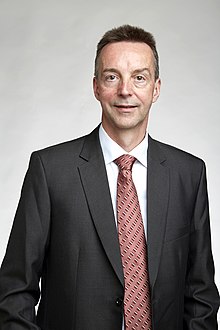
Zoubin Ghahramani FRS is a British-Iranian researcher and Professor of Information Engineering at the University of Cambridge. He holds joint appointments at University College London and the Alan Turing Institute. and has been a Fellow of St John's College, Cambridge since 2009. He was Associate Research Professor at Carnegie Mellon University School of Computer Science from 2003–2012. He was also the Chief Scientist of Uber from 2016 until 2020. He joined Google Brain in 2020 as senior research director. He is also Deputy Director of the Leverhulme Centre for the Future of Intelligence.
Dame Frances Mary Ashcroft is a British ion channel physiologist. She is Royal Society GlaxoSmithKline Research Professor at the University Laboratory of Physiology at the University of Oxford. She is a fellow of Trinity College, Oxford, and is a director of the Oxford Centre for Gene Function. Her research group has an international reputation for work on insulin secretion, type II diabetes and neonatal diabetes. Her work with Andrew Hattersley has helped enable children born with diabetes to switch from insulin injections to tablet therapy.
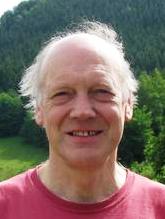
Geoffrey Richard GrimmettOLY is an English mathematician known for his work on the mathematics of random systems arising in probability theory and statistical mechanics, especially percolation theory and the contact process. He is the Professor of Mathematical Statistics in the Statistical Laboratory, University of Cambridge, and was the Master of Downing College, Cambridge, from 2013 to 2018.

Sir Christopher Martin Dobson was a British chemist, who was the John Humphrey Plummer Professor of Chemical and Structural Biology in the Department of Chemistry at the University of Cambridge, and Master of St John's College, Cambridge.
James Julian Bennett Jack is a New Zealand physiologist.

Jonathan Felix Ashmore is a British physicist and Bernard Katz Professor of Biophysics at University College London.
Philip Candelas, is a British physicist and mathematician. After 20 years at the University of Texas at Austin, he served as Rouse Ball Professor of Mathematics at the University of Oxford until 2020 and is a Fellow of Wadham College, Oxford.
Simon Tavaré is a British researcher who is the founding Director of the Herbert and Florence Irving Institute of Cancer Dynamics at Columbia University. Prior to joining Columbia, he was Director of the Cancer Research UK Cambridge Institute, Professor of Cancer Research at the Department of Oncology and Professor in the Department of Applied Mathematics and Theoretical Physics (DAMTP) at the University of Cambridge.

Sarah-Jayne Blakemore is Professor of Psychology and Cognitive Neuroscience at the University of Cambridge and co-director of the Wellcome Trust PhD Programme Neuroscience at University College London.
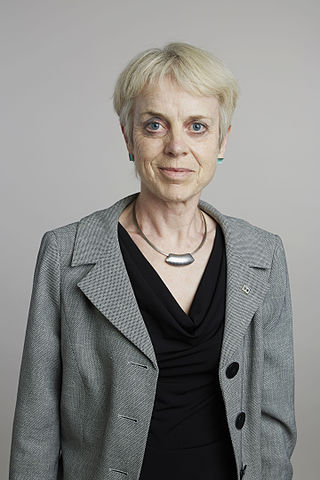
Annette Catherine Dolphin is a British scientist who is Professor of Pharmacology in the Department of Neuroscience, Physiology and Pharmacology at University College London (UCL).
Andrew Oliver Mungo Wilkie is a British clinical geneticist who has been the Nuffield professor of Pathology at the University of Oxford since 2003.
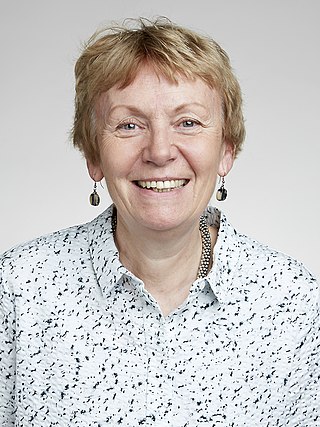
Maria Fitzgerald is a British neuroscientist who is a professor in the Department of Neuroscience at University College London.
The Royal Society University Research Fellowship (URF) is a research fellowship awarded to outstanding early career scientists in the United Kingdom who are judged by the Royal Society to have the potential to become leaders in their field. The research fellowship funds all areas of research in natural science including life sciences, physical sciences and engineering, but excluding clinical medicine.
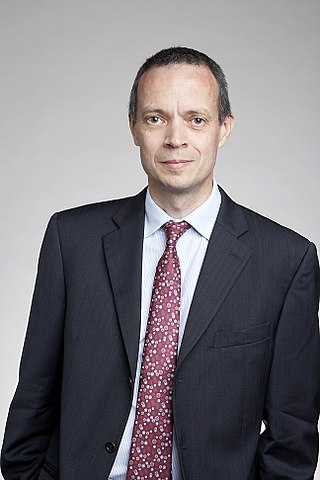
Andrew John Orr-Ewing is a British chemist and Professor of physical chemistry at the University of Bristol. His work investigates the mechanisms of chemical reaction in both the gas and liquid phases and has used ultrafast laser spectroscopy to observe the effects of solvents on molecular reaction and the dynamics of photodissociation.

Neil Burgess is a British neuroscientist. He has been a professor of cognitive neuroscience at University College London since 2004 and a Wellcome Trust Principal Research Fellow since 2011. He has made important contributions to understanding memory and spatial cognition by developing computational models relating behaviour to activity in biological neural networks.

Andrew William Woods is an English mathematician who is BP Professor at the University of Cambridge and a professorial fellow of St John's College, Cambridge.

Robert Charles Swanton is a British physician scientist specialising in oncology and cancer research. Swanton is a senior group leader at London's Francis Crick Institute, Royal Society Napier Professor in Cancer and thoracic medical oncologist at University College London and University College London Hospitals, co-director of the Cancer Research UK (CRUK) Lung Cancer Centre of Excellence, and Chief Clinician of Cancer Research UK.

Timothy Peter Softley is a British scientist who is Pro-vice-chancellor (PVC) for research and knowledge transfer at the University of Birmingham.
Anant B. Parekh is a British physiologist who is professor of Physiology at the University of Oxford and a Fellow of Merton College, Oxford.
Andrew Dawson Taylor was director of the Science and Technology Facilities Council National Laboratories – Rutherford Appleton Laboratory, Daresbury Laboratory, and the UK Astronomy Technology Centre in Edinburgh until his retirement in 2019.
